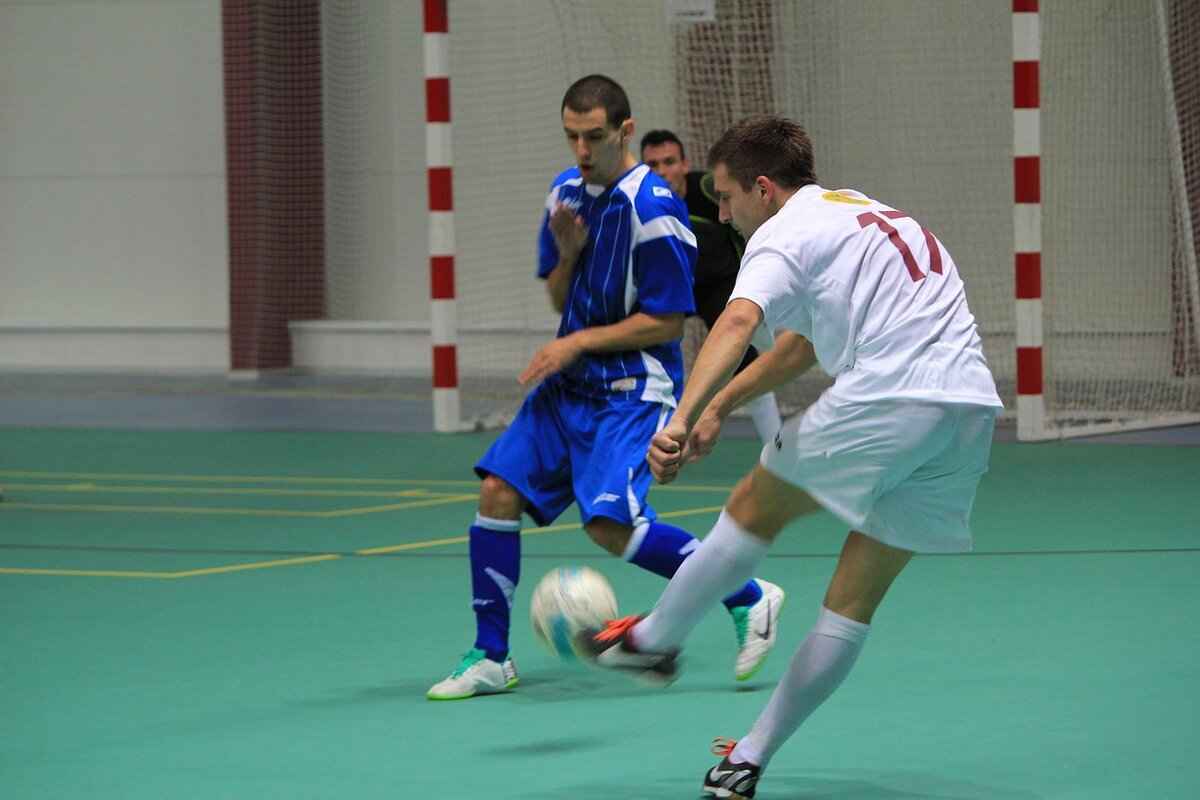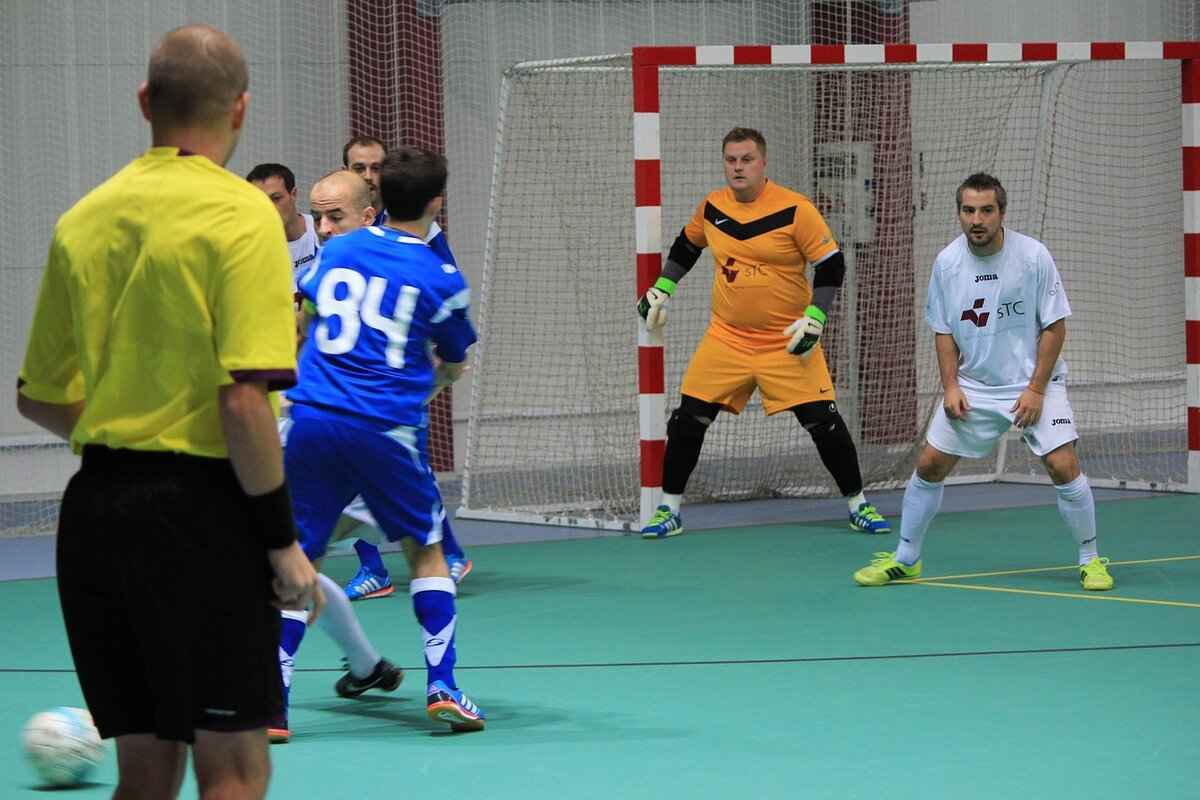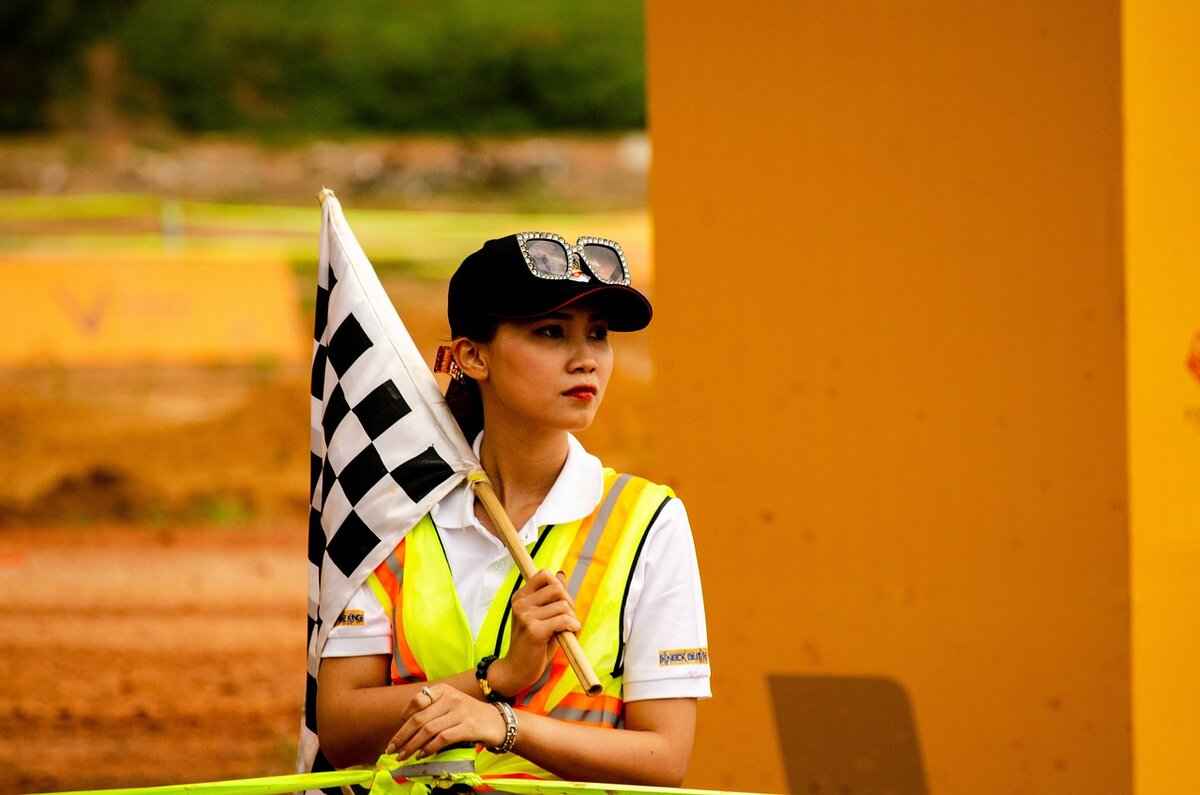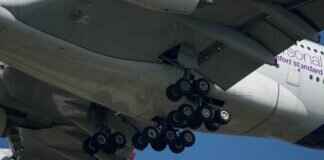In today’s legal landscape, individuals and businesses are increasingly seeking alternatives to traditional court proceedings for resolving disputes. This article explores the benefits and drawbacks of arbitration and mediation, two popular alternatives, helping you make an informed decision for your legal disputes.
Understanding Arbitration
Arbitration is a private dispute resolution process where an impartial third party, known as the arbitrator, makes a binding decision on the matter. This process is often favored for its efficiency and confidentiality compared to court litigation. Unlike court cases, which can take years to resolve, arbitration typically moves at a faster pace, allowing parties to achieve a resolution more quickly.
What is Mediation?
Mediation involves a neutral third party who facilitates discussions between disputing parties to help them reach a mutually agreeable solution. Unlike arbitration, mediation emphasizes collaboration and communication over adversarial tactics, making it a preferable option in situations where parties wish to maintain a relationship.
Key Differences Between Arbitration and Mediation
- Binding vs. Non-Binding Outcomes: In arbitration, the decision is usually binding and enforceable by law, while mediation results in a non-binding agreement that requires both parties’ consent to finalize.
- Role of the Neutral Party: The neutral party in arbitration acts as a judge, making decisions based on evidence, whereas in mediation, the neutral party acts as a facilitator, encouraging dialogue and compromise.
Pros and Cons of Arbitration
Arbitration has its advantages, such as speed and confidentiality, but it also has drawbacks, including limited appeal options and potential costs. Evaluating these factors is crucial for decision-making. Some common pros include:
- Quicker resolution times compared to court cases.
- Confidentiality of proceedings and outcomes.
However, the cons can include:
- Limited opportunities for appeal.
- Potentially high arbitrator fees.
Pros and Cons of Mediation
Mediation offers flexibility and control to the parties involved, but it may not always lead to a resolution. Understanding its strengths and weaknesses can help you decide if it’s suitable for your situation. Some advantages of mediation include:
- Greater control over the outcome by the parties involved.
- Preservation of relationships through collaborative negotiation.
On the flip side, mediation can have its downsides:
- No guaranteed resolution, which may lead to further disputes.
- Possible power imbalances between negotiating parties.
When to Choose Arbitration
Certain disputes may benefit more from arbitration, especially those requiring a quick resolution or involving complex contractual obligations. Knowing when to opt for arbitration is vital for effective conflict resolution.
When to Choose Mediation
Mediation is often best for disputes where parties wish to maintain relationships, such as family or business conflicts. Recognizing suitable scenarios for mediation can lead to more amicable outcomes.
Cost Considerations
Both arbitration and mediation can be more cost-effective than court litigation, but their overall expenses can vary widely. Analyzing costs associated with each method is essential for budgeting your dispute resolution.
Confidentiality in Dispute Resolution
Confidentiality can be a significant advantage in both arbitration and mediation, protecting sensitive information from public disclosure. Understanding how confidentiality works in these processes is crucial for many parties.
Ultimately, the decision between arbitration and mediation requires careful consideration of your specific circumstances, needs, and goals. This decision can significantly impact the resolution of your legal conflict.

Understanding Arbitration
Arbitration is a private dispute resolution process that allows parties to resolve their conflicts outside the traditional court system. In this process, an impartial third party, known as the arbitrator, is appointed to make a binding decision based on the evidence and arguments presented by both sides. This method of dispute resolution has gained traction in recent years due to its numerous advantages over conventional litigation.
One of the primary reasons parties opt for arbitration is its efficiency. Unlike court proceedings, which can stretch for months or even years, arbitration typically resolves disputes in a matter of weeks. This expedited timeline is particularly beneficial for businesses that need to address conflicts quickly to minimize disruption. Additionally, the arbitration process is often less formal than court, allowing for a more streamlined approach to presenting evidence and arguments.
Another significant advantage of arbitration is confidentiality. Court cases are generally public records, meaning that sensitive information can be exposed to the public. In contrast, arbitration proceedings are private, protecting the interests of the parties involved. This aspect is especially crucial for businesses that wish to keep trade secrets or proprietary information from becoming public knowledge.
Furthermore, arbitration can offer parties greater control over the process. Parties can choose their arbitrator, allowing them to select someone with expertise in the relevant field or industry. This choice can lead to a more informed decision, as the arbitrator is likely to understand the complexities of the subject matter at hand. Additionally, the parties can agree on specific rules and procedures that best suit their needs, further enhancing the tailored nature of arbitration.
However, it is essential to recognize that arbitration is not without its drawbacks. One significant concern is the limited right to appeal. In most cases, the arbitrator’s decision is final and binding, leaving parties with little recourse if they believe the outcome was unjust. This finality can be a double-edged sword, as it may lead to a swift resolution but can also prevent parties from seeking redress if they feel wronged.
Moreover, while arbitration can be cost-effective, it is not always the case. The costs associated with hiring an arbitrator and any legal fees can add up quickly, particularly in complex cases. Therefore, parties should carefully evaluate the potential expenses involved in arbitration compared to traditional litigation.
In summary, arbitration is a valuable alternative to court litigation, offering benefits such as efficiency, confidentiality, and control over the process. However, it is crucial for parties to weigh these advantages against the potential downsides, including limited appeal rights and costs. By understanding the intricacies of arbitration, parties can make informed decisions that best serve their interests in resolving disputes.

What is Mediation?
Mediation is a collaborative dispute resolution process that involves a neutral third party, known as a mediator, who assists disputing parties in reaching a mutually agreeable solution. Unlike traditional court proceedings, mediation emphasizes communication and collaboration rather than adversarial tactics, making it a preferred choice for many individuals and organizations.
The role of the mediator is crucial; they do not make decisions for the parties but rather facilitate discussions, helping each side to express their needs and concerns openly. This process encourages a more constructive dialogue, allowing parties to explore creative solutions that might not be available in a court setting.
One of the key benefits of mediation is its flexibility. Unlike court proceedings, which are bound by strict rules and procedures, mediation allows parties to control the outcome. They can negotiate terms that are tailored to their specific situation, fostering a sense of ownership over the resolution. This flexibility is particularly beneficial in disputes where ongoing relationships, such as family or business partnerships, need to be preserved.
Moreover, mediation is generally less formal than arbitration or litigation. The setting is often more relaxed, and the process can take place in a neutral location chosen by the parties involved. This informal atmosphere can help reduce tension and promote a more open exchange of ideas, making it easier for parties to reach a consensus.
Cost-effectiveness is another significant advantage of mediation. Compared to traditional court proceedings, mediation can save parties both time and money. Since the process is typically quicker and avoids lengthy litigation, parties can resolve their disputes in a more economical manner. Additionally, mediation sessions are often billed at an hourly rate, which can be more manageable than the cumulative costs associated with court fees and legal representation.
However, it is important to understand that mediation may not be suitable for every type of dispute. For instance, if one party is unwilling to negotiate in good faith or if there are significant power imbalances between the parties, mediation may not lead to a successful resolution. In such cases, other dispute resolution methods, such as arbitration or litigation, might be more appropriate.
Confidentiality is a hallmark of mediation. All discussions that take place during mediation are typically kept private, which can encourage parties to speak freely without fear of their words being used against them later in court. This confidentiality can be particularly appealing for businesses concerned about protecting sensitive information or individuals wanting to avoid public scrutiny.
In summary, mediation is a valuable alternative to traditional court proceedings that offers numerous advantages, including flexibility, cost-effectiveness, and confidentiality. By fostering a collaborative environment, mediation allows parties to maintain control over the outcome of their disputes while working towards a solution that meets their needs. It is essential for individuals and organizations to consider their specific circumstances and the nature of their dispute when deciding whether mediation is the right choice for them.
Key Differences Between Arbitration and Mediation
When navigating the complexities of legal disputes, individuals often find themselves at a crossroads, contemplating whether to pursue arbitration or mediation. Both of these methods serve as effective alternatives to traditional court proceedings, yet they differ significantly in their processes, outcomes, and the roles of participants involved. Understanding these distinctions is crucial for making an informed choice that aligns with your specific needs and circumstances.
At their core, arbitration and mediation are designed to resolve disputes outside of the courtroom. However, the mechanics of each process diverge considerably:
- Process Structure: Arbitration is a more formal process akin to a court trial, where an arbitrator hears evidence and makes a binding decision. In contrast, mediation is a collaborative process where a mediator facilitates discussions between parties, aiming to help them reach a voluntary agreement.
- Decision-Making: In arbitration, the arbitrator’s decision is final and legally binding, which means that parties typically have limited options for appeal. Mediation, however, results in a non-binding agreement, requiring the consent of both parties to finalize any resolution.
- Role of the Neutral Party: The arbitrator acts as a judge, making decisions based on the evidence presented. Conversely, the mediator serves as a facilitator, guiding the conversation and helping parties explore options without imposing a solution.
- Confidentiality: Both processes offer a degree of confidentiality, but the specifics can vary. Arbitration hearings can be private, while mediation sessions are generally confidential, with discussions not admissible in court if an agreement is not reached.
Both arbitration and mediation come with their own set of pros and cons. Arbitration is often praised for its efficiency and speed, making it a suitable option for parties seeking a quick resolution. However, it can also be expensive and may limit the parties’ ability to appeal the decision.
Mediation, on the other hand, provides parties with greater control over the outcome, as they work collaboratively to find a solution. This method is particularly beneficial for maintaining relationships, such as in family or business disputes. Yet, it may not always lead to a resolution, which could necessitate further legal action.
Arbitration is often the preferred choice in situations where a binding resolution is necessary, especially for complex contractual disputes or cases requiring specialized knowledge. It is also suitable for parties who seek a quicker resolution than what might be available through the court system.
Mediation is typically recommended for disputes where the parties wish to preserve their relationship. It is especially useful in family law matters, workplace conflicts, or business partnerships, where ongoing interactions are likely. The collaborative nature of mediation can lead to more amicable outcomes, fostering a sense of cooperation rather than hostility.
Cost is a critical factor when deciding between arbitration and mediation. Both methods can be more cost-effective than traditional litigation, but the overall expenses can vary significantly based on the complexity of the case and the fees associated with the neutral parties involved. It is essential to evaluate your budget and the potential costs associated with each method before making a decision.
Ultimately, the choice between arbitration and mediation hinges on the specific circumstances of your dispute, your desired outcomes, and your willingness to engage in collaborative problem-solving. By understanding the key differences and implications of each method, you can make an informed decision that best suits your legal needs.
Binding vs. Non-Binding Outcomes
When navigating the complexities of legal disputes, understanding the distinction between binding and non-binding outcomes is essential. This knowledge can significantly influence your choice between arbitration and mediation, two popular alternatives to traditional court litigation.
In the context of arbitration, the decisions made by the arbitrator are typically binding. This means that once a decision is rendered, it is enforceable by law, and both parties are obligated to adhere to it. The binding nature of arbitration provides a sense of finality, which can be advantageous in disputes where a swift resolution is desired.
- Enforceability: Arbitration awards can be enforced in courts, making it a powerful tool for dispute resolution.
- Limited Appeal: The options for appealing an arbitration decision are severely limited, which can be a drawback for parties seeking to challenge unfavorable outcomes.
- Efficiency: Because arbitration is generally quicker than court proceedings, parties can save time and resources.
Conversely, mediation results in a non-binding agreement. In this process, a neutral mediator facilitates discussions between the parties with the aim of reaching a mutually acceptable resolution. However, any agreement reached during mediation requires the consent of both parties to become enforceable.
- Flexibility: Since the outcomes are non-binding, parties have the freedom to explore various solutions without the pressure of a binding decision.
- Relationship Preservation: Mediation is particularly useful in disputes where maintaining a relationship is important, such as family or business conflicts.
- Collaborative Approach: The non-binding nature of mediation encourages open communication and collaboration, often leading to more amicable outcomes.
The choice between arbitration and mediation often hinges on the desired outcome and the nature of the dispute. While arbitration provides a definitive resolution that is enforceable by law, mediation offers a more flexible approach that prioritizes cooperation and consensus.
For instance, in situations where parties anticipate ongoing relationships, such as in business partnerships, mediation may be the preferred choice due to its collaborative nature. On the other hand, in disputes involving significant financial stakes or when a quick resolution is paramount, arbitration may be more suitable.
Ultimately, understanding the differences between binding and non-binding outcomes is crucial for making an informed decision regarding arbitration or mediation. Each process has its unique advantages and drawbacks, and the choice should align with the specific needs and circumstances of the parties involved. Consulting with a legal expert can further aid in navigating these options effectively.
Role of the Neutral Party
When navigating the complexities of dispute resolution, understanding the role of the neutral party is essential. This element significantly influences the outcomes of both arbitration and mediation, two popular alternatives to traditional court proceedings.
Defining the Neutral Party’s Role in Arbitration
In the context of arbitration, the neutral party, often referred to as the arbitrator, takes on a role akin to that of a judge. Their primary responsibility is to evaluate evidence presented by both sides and make a binding decision based on the merits of the case. This process typically involves:
- Reviewing Documentation: The arbitrator assesses all relevant documents submitted by the parties.
- Conducting Hearings: They may hold hearings where both parties can present their arguments and evidence.
- Delivering a Decision: After considering all information, the arbitrator issues a decision that is generally enforceable by law.
This structured approach not only ensures that disputes are resolved efficiently but also provides a sense of finality, as the arbitrator’s decision is typically binding and subject to limited appeal.
The Neutral Party’s Role in Mediation
Conversely, in mediation, the neutral party acts as a facilitator rather than a judge. Their goal is to assist the disputing parties in reaching a mutually acceptable solution through open dialogue and negotiation. Key aspects of this role include:
- Encouraging Communication: The mediator creates a safe environment for both parties to express their views and concerns.
- Identifying Interests: They help clarify the underlying interests and needs of each party, which can lead to more creative solutions.
- Guiding Negotiations: The mediator steers discussions, suggesting compromises and helping to bridge gaps between conflicting positions.
Unlike arbitration, the outcomes of mediation are generally non-binding, meaning that any agreement reached requires the consent of both parties to be finalized. This can foster a sense of collaboration and preserve relationships, making mediation particularly effective in disputes where ongoing interactions are necessary.
Comparative Insights
Understanding the distinct roles of the neutral party in both processes can help parties make informed choices regarding which method to pursue. While arbitration offers a definitive resolution, mediation emphasizes collaboration and flexibility. Here are some factors to consider:
- Nature of the Dispute: If a legal ruling is essential, arbitration may be more suitable. For relational disputes, mediation might be preferable.
- Desired Outcomes: Parties seeking a quick resolution may lean towards arbitration, while those valuing ongoing relationships might choose mediation.
- Control Over Process: Mediation allows for more control over the outcome, as parties actively participate in crafting the agreement.
In conclusion, the role of the neutral party is pivotal in determining the effectiveness of both arbitration and mediation. By understanding these roles, parties can better navigate their options and select the most appropriate path for resolving their disputes.
Pros and Cons of Arbitration
When considering alternatives to traditional court proceedings, arbitration emerges as a popular choice among individuals and businesses alike. This method of dispute resolution offers a range of advantages and disadvantages that warrant careful examination.
Arbitration is often praised for its speed and confidentiality. Unlike court cases, which can drag on for months or even years, arbitration typically resolves disputes in a much shorter timeframe. This efficiency can be particularly beneficial for parties seeking a swift resolution to their conflicts.
Another significant advantage of arbitration is its confidential nature. Proceedings are private, which means that sensitive information is shielded from public view. This aspect can be especially appealing for businesses that want to protect trade secrets or maintain their reputation during disputes.
However, arbitration is not without its drawbacks. One major concern is the limited options for appeal. In most cases, the arbitrator’s decision is final and binding, which can leave parties feeling trapped if they believe the ruling was unjust. This lack of recourse can be a significant disadvantage, especially in complex cases where legal interpretations may vary.
Additionally, while arbitration is often perceived as a cost-effective solution, the total costs can vary widely. Fees for arbitrators, administrative expenses, and other associated costs can accumulate, potentially making arbitration as expensive as, or even more expensive than, traditional litigation. It is essential for parties to evaluate these potential costs before committing to this process.
Furthermore, the perception of bias can also be a concern in arbitration. If parties feel that the arbitrator has a vested interest or is biased towards one side, it can undermine the legitimacy of the process. Selecting a neutral and experienced arbitrator is crucial in mitigating this issue.
In summary, arbitration presents a unique set of pros and cons. Its speed and confidentiality can make it an attractive option for resolving disputes, but the limitations on appeals and potential costs must be carefully considered. Understanding these factors is vital for making an informed decision about whether arbitration is the right choice for your specific situation.
Ultimately, the decision to choose arbitration should be based on a thorough evaluation of your circumstances and the nature of the dispute. Consulting with legal professionals who understand the intricacies of arbitration can provide valuable insights and help you navigate the complexities of this dispute resolution method.
By weighing the benefits against the drawbacks, you can make a more informed choice that aligns with your goals and needs, ensuring that you select the most appropriate path for resolving your legal conflicts.
Pros and Cons of Mediation
Mediation is a widely recognized method of resolving disputes outside of traditional court settings. It provides a platform for parties to engage in constructive dialogue with the help of a neutral third party. This approach fosters collaboration and aims to achieve a mutually satisfactory outcome. However, like any method, mediation comes with its own set of advantages and disadvantages.
- Flexibility: Mediation allows parties to determine the process and schedule. Unlike court proceedings, which follow strict rules and timelines, mediation can be tailored to fit the needs and availability of the parties involved.
- Control: Participants in mediation retain control over the outcome. They can negotiate terms that work for them, rather than having a decision imposed by a judge or arbitrator.
- Cost-Effectiveness: Mediation is generally less expensive than litigation. The reduced time and resources spent on legal battles can result in significant savings for both parties.
- Confidentiality: Mediation sessions are typically private, allowing parties to discuss sensitive issues without fear of public disclosure. This confidentiality can encourage open communication and honest negotiation.
- Preservation of Relationships: Mediation is often suitable for disputes where parties have an ongoing relationship, such as in family or business matters. The collaborative nature of mediation can help maintain these relationships post-dispute.
- No Guaranteed Resolution: One of the primary drawbacks of mediation is that it may not always lead to a resolution. If the parties cannot reach an agreement, they may still need to pursue litigation or arbitration.
- Power Imbalances: Mediation relies heavily on the willingness of both parties to engage in good faith. In cases where there is a significant power imbalance, one party may dominate the discussions, leading to an unfair outcome.
- Limited Enforcement: While mediation can result in a mutually agreed-upon solution, it is typically non-binding unless a formal agreement is signed. This means that if one party fails to comply, the other may need to seek legal recourse.
- Emotional Factors: Disputes often involve strong emotions, which can hinder effective communication. If parties are unable to set aside their feelings, mediation may not be successful.
- Potential for Misunderstanding: Without a legal framework to guide discussions, parties may misinterpret each other’s intentions or proposals, leading to further conflict.
In conclusion, mediation presents a viable alternative to traditional litigation, offering several benefits such as flexibility, cost-effectiveness, and the preservation of relationships. However, it is essential for parties to weigh these advantages against the potential drawbacks, including the possibility of no resolution and issues related to power imbalances. By understanding both the pros and cons of mediation, individuals can make informed decisions about whether this method is appropriate for their specific circumstances.

When to Choose Arbitration
When facing legal disputes, understanding the most effective resolution method is crucial. Arbitration is often a preferred choice for various situations, particularly when expediency and complexity are involved. It is essential to recognize the scenarios where arbitration can be particularly beneficial, ensuring you make informed decisions for your legal matters.
One of the primary reasons to consider arbitration is the need for a quick resolution. Unlike traditional court proceedings, which can be lengthy and drawn out, arbitration typically allows for faster outcomes. This is especially important in business contexts where time-sensitive decisions can significantly impact operations. For instance, in contractual disputes where deadlines are critical, arbitration can provide a solution in a fraction of the time it would take in court.
Furthermore, arbitration is particularly advantageous for disputes that involve complex contractual obligations. These cases often require a nuanced understanding of specific terms and conditions that may not be easily grasped by a general judge or jury. Arbitrators often have specialized expertise in the relevant field, allowing for more informed and relevant decisions. This expertise ensures that the ruling is not only fair but also grounded in a deep understanding of the subject matter.
Another important aspect to consider is the confidentiality offered by arbitration. Unlike court cases, which are generally public, arbitration proceedings are private. This confidentiality can be crucial for businesses that wish to protect sensitive information, trade secrets, or proprietary data from being disclosed to competitors or the public. The ability to keep matters confidential can foster a more open dialogue between parties, as they may feel more secure discussing sensitive issues without fear of public scrutiny.
Moreover, arbitration can also reduce the overall costs associated with legal disputes. While there are fees involved, such as arbitrator fees and administrative costs, these can often be lower than the expenses incurred in lengthy court battles, which may include attorney fees, court costs, and other related expenses. By opting for arbitration, parties may find a more cost-effective resolution to their disputes.
However, it is essential to recognize that arbitration may not be suitable for all types of disputes. For example, if parties are seeking to establish legal precedents or wish to appeal a decision, arbitration may not be the best route, as its decisions are generally binding and have limited avenues for appeal. Therefore, understanding the specific nature of your dispute and your desired outcomes is critical before choosing arbitration.
In conclusion, knowing when to opt for arbitration is vital for effective conflict resolution. It is particularly beneficial for disputes requiring a quick resolution, those involving complex contractual obligations, and situations where confidentiality is paramount. By carefully assessing your circumstances and the nature of your dispute, you can make an informed choice that aligns with your legal needs.

When to Choose Mediation
Mediation is a valuable tool in the realm of dispute resolution, particularly when maintaining relationships is a priority. This approach is often best suited for conflicts arising in family settings, workplaces, or long-term business partnerships. By understanding when to choose mediation, parties can foster a more collaborative environment and work towards solutions that are beneficial for all involved.
One of the primary advantages of mediation is its focus on communication. Unlike adversarial processes, mediation encourages open dialogue between parties. This can be particularly important in family disputes, such as divorce or child custody cases, where ongoing relationships are essential for co-parenting. In such scenarios, mediation can help parties express their feelings and concerns in a structured manner, leading to a more amicable resolution.
In business contexts, mediation serves as a way to resolve conflicts without damaging professional relationships. For example, if two partners in a business are at odds over a financial decision, mediation allows them to discuss their perspectives and negotiate a solution that respects both parties’ interests. This can prevent the escalation of disputes into costly legal battles that could harm their business operations and reputations.
Flexibility is another key characteristic of mediation. The process is not bound by strict legal procedures, allowing parties to craft solutions that are tailored to their unique circumstances. This flexibility can lead to creative outcomes that might not be possible in a courtroom setting, where judges are limited to legal precedents and statutory mandates.
Moreover, mediation can be a cost-effective alternative to litigation. Court cases can be expensive and time-consuming, often leading to financial strain for both parties. Mediation typically involves fewer fees and can be completed in a fraction of the time, making it an attractive option for those looking to resolve disputes efficiently.
It is also important to consider the emotional aspects of mediation. Legal disputes can be emotionally draining, and the adversarial nature of court proceedings can exacerbate tensions. Mediation, on the other hand, allows for a more supportive atmosphere where parties can work together towards a resolution. This can lead to improved relationships and a sense of closure, which is often not achieved in traditional litigation.
However, mediation is not a one-size-fits-all solution. It is most effective when both parties are willing to negotiate in good faith. If one party is unwilling to engage or is seeking to dominate the conversation, mediation may not yield positive results. Additionally, mediation is not suitable for all types of disputes, particularly those involving significant power imbalances or where one party is seeking punitive damages.
In summary, mediation is an excellent choice for disputes where maintaining relationships is crucial. Its emphasis on communication, flexibility, cost-effectiveness, and emotional support makes it a compelling alternative to traditional litigation. By recognizing the scenarios in which mediation is most beneficial, parties can work towards more amicable outcomes that preserve their relationships and foster collaboration.
Cost Considerations
When navigating the complexities of legal disputes, understanding the associated with arbitration and mediation is crucial. Both methods can offer significant savings compared to traditional court litigation, yet the actual expenses can vary considerably based on numerous factors.
Arbitration typically involves several costs, including:
- Arbitrator Fees: The fees paid to the arbitrator can range from a few hundred to several thousand dollars, depending on their experience and the complexity of the case.
- Administrative Costs: Many arbitration organizations charge administrative fees, which can add to the overall expense.
- Legal Fees: Parties often need legal representation during arbitration, which can significantly increase costs.
- Hearing Costs: Expenses related to the venue, such as room rental and equipment, may also apply.
Considering these factors, while arbitration can be less expensive than court litigation, it is essential to budget carefully to avoid unexpected financial burdens.
Mediation is generally seen as a more affordable option, with costs that can include:
- Mediator Fees: Mediators typically charge hourly rates, which can be more manageable than arbitrators’ fees.
- Preparation Costs: While mediation may require less preparation than arbitration, parties may still incur costs in gathering necessary documentation and consulting with legal advisors.
- Venue Costs: Similar to arbitration, there may be costs associated with the location where mediation takes place.
Despite these costs, mediation often results in quicker resolutions, which can lead to overall savings in time and money.
Beyond the direct fees associated with arbitration and mediation, several other factors can impact the overall expenses:
- Complexity of the Case: More complex cases often require more time and resources, increasing costs in both arbitration and mediation.
- Length of Proceedings: The longer the process takes, the higher the costs will be, especially if legal representation is involved.
- Number of Parties Involved: Multiple parties can complicate the process and lead to higher expenses due to additional legal fees and mediator or arbitrator time.
When considering arbitration or mediation, it is essential to create a detailed budget. This budget should account for all potential costs, including:
- Fees for professionals (arbitrators, mediators, and attorneys)
- Administrative and venue costs
- Travel expenses, if applicable
- Time lost from work or business
By preparing a comprehensive budget, parties can avoid financial surprises and make informed decisions about their dispute resolution options.
In conclusion, while both arbitration and mediation can offer cost-effective alternatives to court litigation, understanding the various factors influencing costs is essential. By carefully analyzing potential expenses and creating a solid budget, parties can choose the most suitable method for resolving their disputes effectively.
Confidentiality in Dispute Resolution
Confidentiality plays a crucial role in both arbitration and mediation, offering parties a significant advantage by safeguarding sensitive information from public scrutiny. In an era where information leaks can damage reputations and relationships, understanding the implications of confidentiality in these alternative dispute resolution (ADR) processes is essential for parties involved in legal disputes.
What is Confidentiality in Arbitration and Mediation?
Confidentiality refers to the obligation to keep information private and not disclose it to unauthorized individuals. In arbitration, the proceedings are typically private, and the details of the case, including evidence and the final decision, are not made public. This privacy encourages parties to share sensitive information freely without fear of it being used against them in future disputes or court proceedings.
In mediation, confidentiality is equally important. The mediator acts as a neutral facilitator, and any discussions held during the session are generally protected from being disclosed in any subsequent legal proceedings. This protection allows parties to negotiate openly and honestly, fostering a collaborative environment aimed at reaching a mutually beneficial resolution.
Why is Confidentiality Important?
- Protection of Sensitive Information: Many disputes involve proprietary business information, personal matters, or trade secrets. Confidentiality safeguards this information, ensuring that it does not become public knowledge.
- Encourages Open Communication: When parties know their discussions are confidential, they are more likely to communicate openly, which can lead to more effective negotiation and resolution.
- Prevents Future Legal Issues: Confidentiality can prevent information disclosed during arbitration or mediation from being used in later court cases, which can be a significant concern for parties.
Legal Framework Surrounding Confidentiality
In the United States, the legal framework for confidentiality in arbitration and mediation varies by state and jurisdiction. Many states have enacted laws that explicitly protect the confidentiality of ADR processes. For instance, the Uniform Arbitration Act and the Federal Arbitration Act provide guidelines that reinforce the confidentiality of arbitration proceedings.
Similarly, mediation confidentiality is often governed by state laws, which typically establish that communications made during mediation are inadmissible in court. However, exceptions exist, such as when there is evidence of fraud or other illegal activities. Understanding these nuances is vital for parties considering arbitration or mediation as an alternative to litigation.
Practical Tips for Maintaining Confidentiality
- Draft Clear Confidentiality Agreements: Before entering arbitration or mediation, parties should consider drafting a confidentiality agreement that outlines the scope and limits of confidentiality.
- Limit Disclosure: Share sensitive information only with necessary parties involved in the dispute resolution process to minimize risk.
- Consult Legal Counsel: Engaging with an attorney experienced in ADR can help ensure that confidentiality is maintained throughout the process.
In conclusion, confidentiality serves as a vital component in both arbitration and mediation, providing a safe space for parties to resolve disputes without the fear of public exposure. By understanding the importance of confidentiality and taking proactive steps to protect sensitive information, parties can navigate the complexities of dispute resolution more effectively. As you consider your options, prioritize confidentiality to enhance the likelihood of a satisfactory resolution.

Conclusion: Making the Right Choice for Your Legal Dispute
Deciding between arbitration and mediation requires careful consideration of your specific circumstances, needs, and goals. This decision can significantly impact the resolution of your legal conflict. Understanding the nuances of each process is essential to making an informed choice that aligns with your objectives.
Evaluating Your Legal Needs
Before choosing between arbitration and mediation, it’s crucial to evaluate your legal needs. Ask yourself questions like: What is the nature of the dispute? Do you require a legally binding decision, or are you looking for a collaborative solution? Analyzing these factors will help you determine which method is more suitable.
Factors Favoring Arbitration
- Speed: Arbitration can often be completed faster than traditional court proceedings, making it an attractive option for parties seeking a swift resolution.
- Confidentiality: Unlike court cases, which are public, arbitration proceedings are private, protecting sensitive information from public scrutiny.
- Expert Decision-Makers: In arbitration, parties can choose arbitrators with specific expertise relevant to their dispute, which can lead to more informed decisions.
When Mediation Might Be the Best Choice
- Preserving Relationships: Mediation is often ideal for disputes where maintaining a relationship is essential, such as family matters or business partnerships.
- Flexibility: Mediation allows for creative solutions that may not be available through arbitration or court, providing parties with more control over the outcome.
- Lower Costs: Mediation can be less expensive than arbitration or litigation, making it an appealing option for those concerned about legal fees.
Understanding the Outcomes
Another critical aspect of your decision is understanding the outcomes of each process. Arbitration typically results in a binding decision that is enforceable by law, while mediation leads to a non-binding agreement that requires mutual consent to finalize. This distinction is vital, as it dictates how the resolution will be implemented and whether there is room for further negotiation.
The Role of the Neutral Party
In arbitration, the neutral party acts as a judge, making decisions based on the evidence presented. Conversely, in mediation, the neutral party facilitates dialogue and encourages compromise without imposing a solution. This fundamental difference can significantly affect the dynamics of the dispute resolution process.
Cost Considerations
While both arbitration and mediation can be more cost-effective than court litigation, the overall expenses can vary widely. It’s essential to analyze the potential costs associated with each method, including fees for arbitrators or mediators, as well as any administrative costs. This analysis will help you budget effectively for your dispute resolution process.
Confidentiality in Both Processes
Confidentiality is a significant advantage in both arbitration and mediation. Protecting sensitive information from public disclosure can be crucial for many parties, particularly in business disputes. Understanding how confidentiality operates within each process can influence your choice, especially if privacy is a concern.
In summary, the decision between arbitration and mediation is not one-size-fits-all. By carefully evaluating your specific circumstances and objectives, you can make a choice that best suits your needs and enhances the likelihood of a successful resolution to your legal conflict.
Frequently Asked Questions
- What is the main difference between arbitration and mediation?
The core difference lies in the process: arbitration involves a neutral party making a binding decision, while mediation focuses on facilitating discussions to help parties reach a mutually agreeable solution.
- Is arbitration always binding?
Yes, arbitration typically results in a binding decision that both parties must adhere to. However, there are some cases where non-binding arbitration can occur, but this is less common.
- Can mediation lead to a resolution?
Mediation aims to foster communication and collaboration, which can lead to a resolution. However, it’s important to note that it may not always succeed in reaching an agreement.
- When should I choose mediation over arbitration?
If maintaining a relationship is important, such as in family or business disputes, mediation might be the better choice. It encourages dialogue and can lead to more amicable solutions.
- Are arbitration and mediation cost-effective?
Both methods can be more affordable than traditional court litigation, but costs can vary significantly. It’s essential to analyze the specific expenses associated with each option before deciding.
- How does confidentiality work in arbitration and mediation?
Both arbitration and mediation offer confidentiality, protecting sensitive information from public disclosure. This can be a crucial factor for parties concerned about privacy in their disputes.














